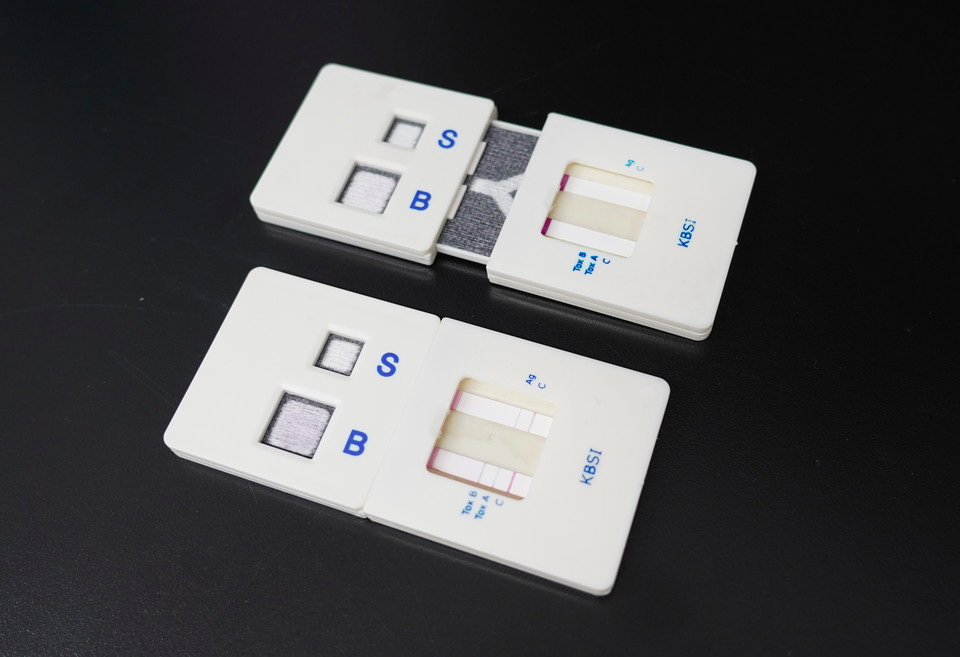The Korea Basic Science Institute (KBSI) said its researchers have developed a fast test kit that detects antibiotic-resistant super bacteria, Clostridioides Difficile (C.Difficile).
The researchers designed a high-sensitivity, multi-analytic technology to develop the paper-based multiplex analytical device, mPAD.
The kit takes only one analysis for 10 minutes and detects low concentrated C.Difficile through high-sensitivity in less than an hour. When the suspected patient drops one’s dejecta in the mPAD, the C.Difficile biomarker type 1 GDH and toxin type 2 infections are detected to check with the naked eye.

It has a 97 percent sensitivity, 88 percent specificity, and 95 percent accuracy. The developers made the kit out of paper, which is cheap and does not require an additional device, making it user-friendly, the team said.
C.Difficile is an antibiotic infection with intestinal bacteria, which causes fever, diarrhea, abdominal pain, and in severe cases, death. There is no treatment to treat the symptom, necessitating a fast, accurate early diagnosis to prevent infections. Current diagnostic methods are C.Difficile antigen, toxin, and genetic tests, which take time and have less accuracy due to the low sensitivity of antigens and toxins.
The study was led by Drs. Choi Jong-soon and Han Do-kyung from the institute’s material analysis team, Kwon Yo-sep from the biochemical analysis team. Professor Kim Dal-sik of the Department of Laboratory Medicine at Chonbuk National University Medical School also joined the development.
“The study shows the possibility of securing and localizing the C.Difficile diagnostic technology,” Dr. Kwon said. “We expect an accurate and profitable C.Difficle diagnostic kit will replace a high-priced, genetic diagnostic test-included diagnostic methods used today.”
Dr. Choi also said, “The purpose of biological-disaster analysis technology development project is to solve issues related directly to citizens’ lives and safety. We hope to expand research projects that can prepare for countermeasures against new viruses, such as Covid-19, in the future.”

